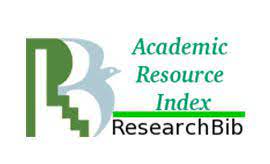Climate education in Junior academy of sciences of Ukraine
DOI:
https://doi.org/10.51707/2618-0529-2020-18-01Keywords:
climate change, science education, demonstrations, physical experiments, hydrodynamics, remote sensingAbstract
Global climate change is one of the central issue of human progress. In the long run, climate change is likely cause a significant slowdown in economic growth. Education is one of the important decision-making tools to adress further climate change. Climate education requires a multidisciplinary approach that includes as the natural sciences (physics, chemistry, geography, biology, geophysics, etc.) and the social sciences (economics, law, etc.). Climate education in the Junior academy sciences of Ukraine (as a UNESCO center of science education) includes techniques within the framework of science education, that based on projects and active teaching, discussing problems in class, questioning: inquiry-based approaches to learning, research to investigate the hypotheses, which may be carried out through experiments, investigations, observations or documentary studies that will lead to solutions with the climate change. The goal of this educational activity is to develop environmental awareness, understanding of the physical aspects of the formation of natural phenomena such as the greenhouse effect, ocean currents and atmospheric circulation, other scientific knowledge and life skills. They are necessary for young people to understand the causes, consequences and mechanisms of climate change. The possibilities of integrating elements of science education on climate issues in the extracurricular education program are described in present paper. In the paper we describe as some examples and corresponding demonstrations of physical experiments as the possibilities of remote sensing to monitor climate change and factors affecting to them.
References
Copernicus. Europe’s eyes on Earth. March. 10. 2020. URL: https://www.copernicus.eu/en Date of application: March 10, 2020.
Heiss J. Climate change education for sustainable development: the UNESCO climate change initiative. URL: www.unesco.org/en/climatechange Date of application: March 10, 2020.
The climate in our hands. Ocean and cryosphere Teacher’s guide book for primary and secondary school. 2020. 194 p.
Babiichuk S., Yurkiv L., Tomchenko О., Kuchma T. Implementation of Science Education Principles at the Junior Academy of Sciences of Ukraine Using Remote Sensing Data. Theory and Practice of Science Education, 2019.Vol. 1, Issue. 1. P. 52–62.
Stocker, T. F., D. Qin, G.K. Plattner, M. Tignor, S. K. Allen, J. Boschung, A. Nauels, Y. Xia, V. Bex and P. M. Midgley (eds.) 2013. IPCC, Climate Change 2013: The Physical Science Basis. Contribution of Working Group I to the Fifth Assessment Report of the Intergovernmental Panel on Climate Change. Cambridge University Press, Cambridge, United Kingdom and New York, NY, USA, 1535 pp. DOI: https:// doi.org/10.1017/cbo9781107415324.023
IPCC, Special Report on the Ocean and Cryosphere in a Changing Climate (SROCC), September 25, 2019.
Illari, L., Marshall, J., and W. D. McKenna. Virtually Enhanced Fluid Laboratories for Teaching Meteorology. American Meteorological Society Journal. 2017. DOI: https://doi.org/10.1175/bamsd160075.1
Osnovy dystancijnogho zonduvannja Zemli: istoriia ta praktychne zastosuvannja [Fundamental of remote sensing: history and practice]: metod. posib. / S. O. Dovhyi ta in. Кyjiv : Instytut obdarovanoji dytyny NAPN Ukrajiny, 2019. P. 316. DOI: 10.5281/zenodo.3265399 [in Ukrainian].
Downloads
Published
How to Cite
Issue
Section
License
Copyright (c) 2021 SCIENTIFIC NOTES OF JUNIOR ACADEMY OF SCIENCES OF UKRAINE

This work is licensed under a Creative Commons Attribution 4.0 International License.













